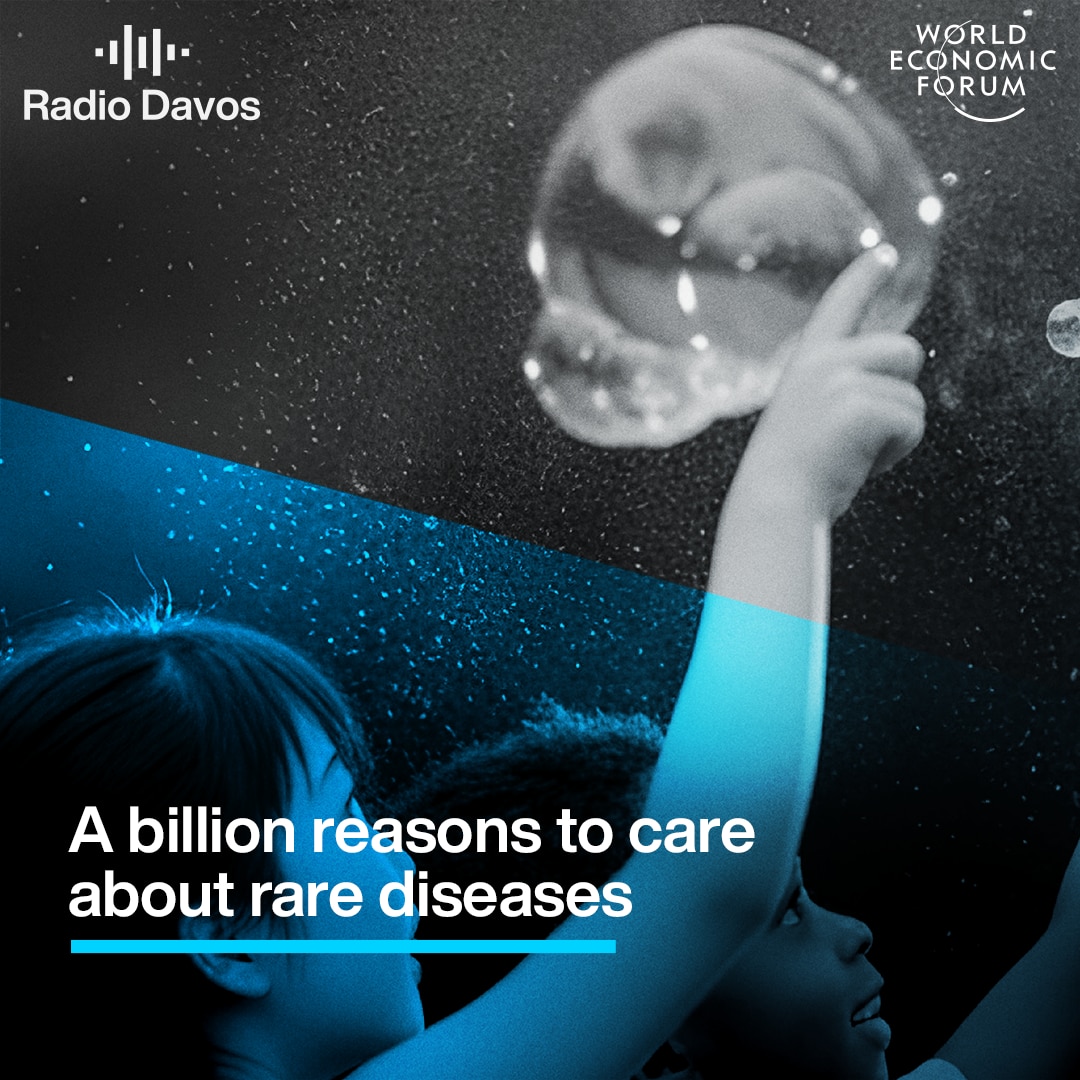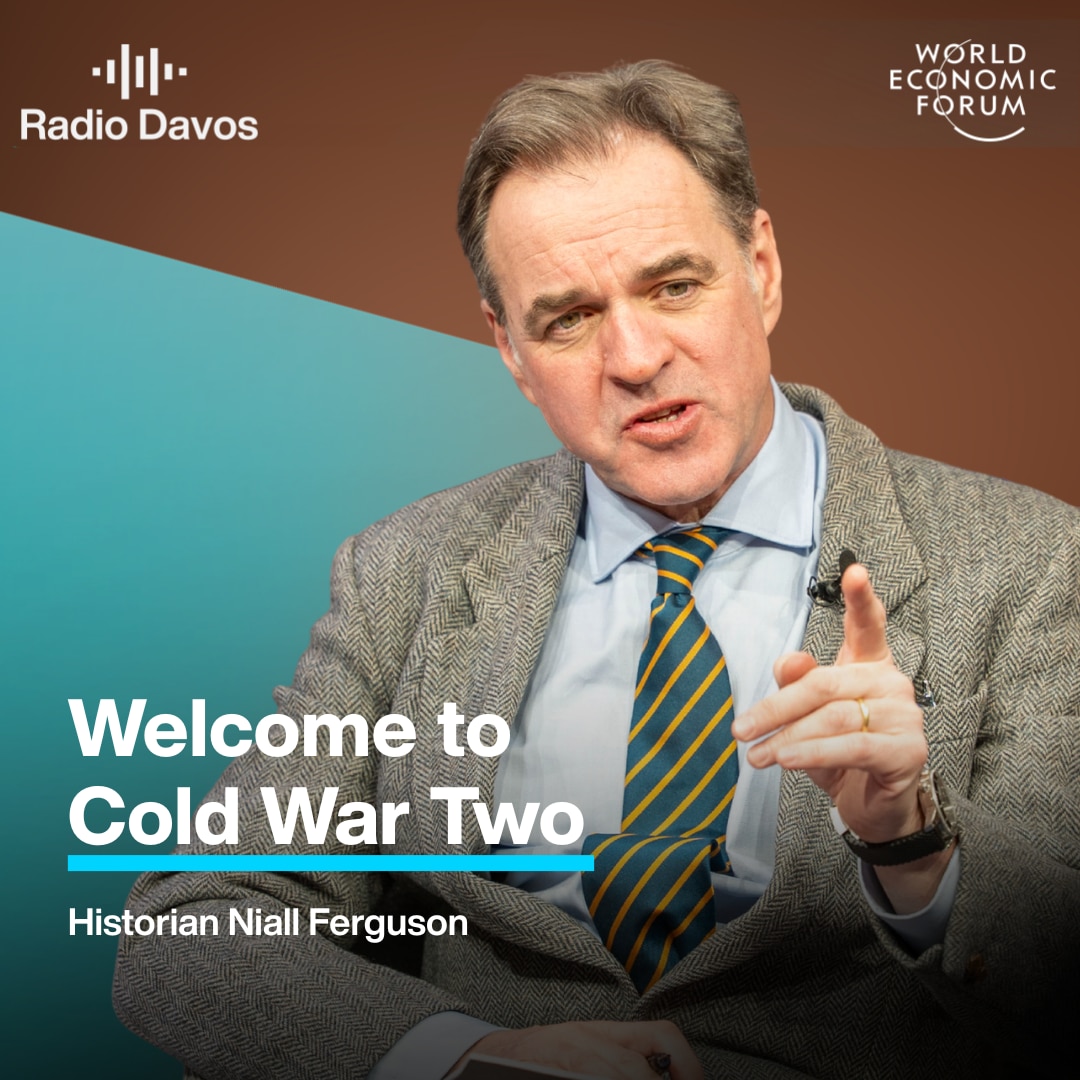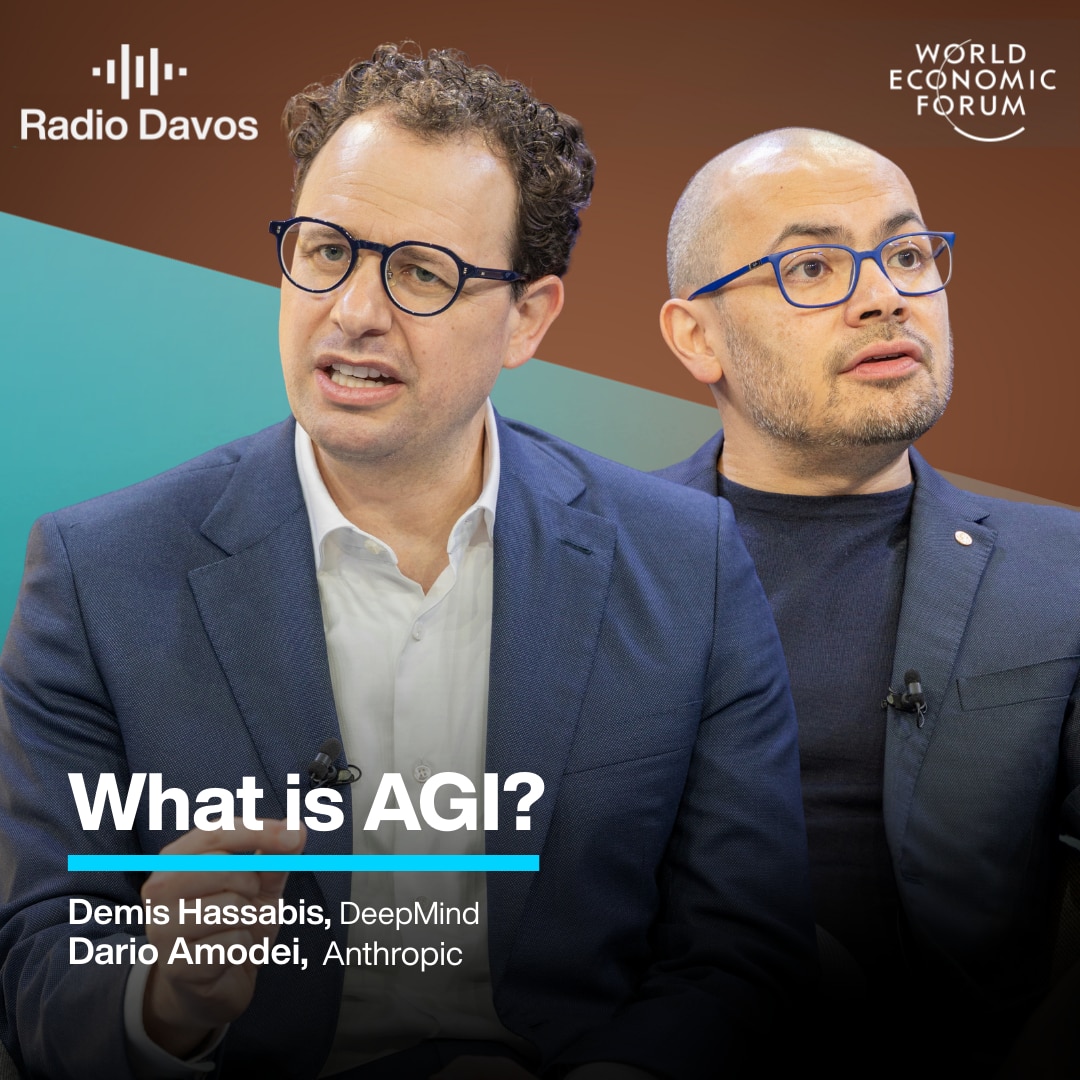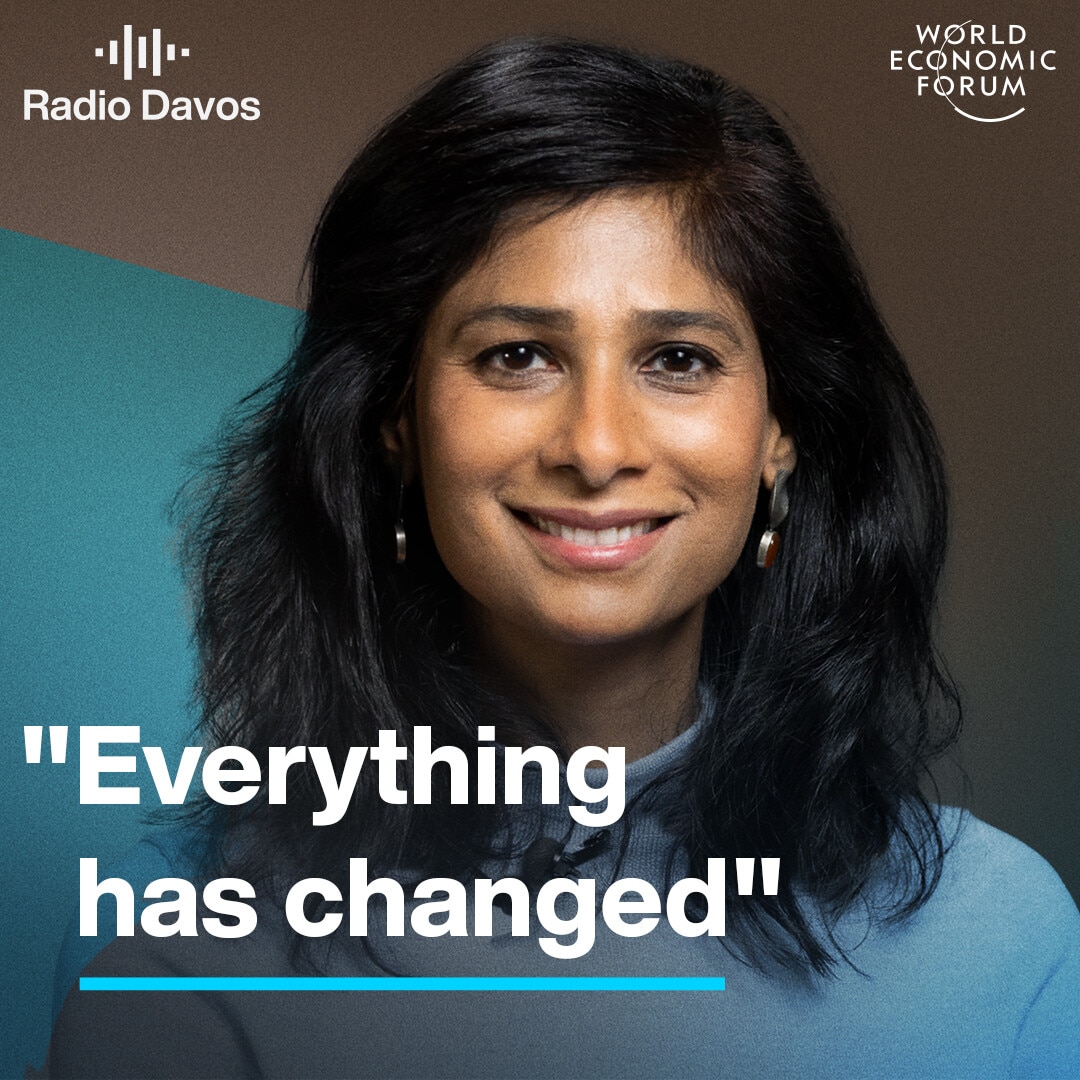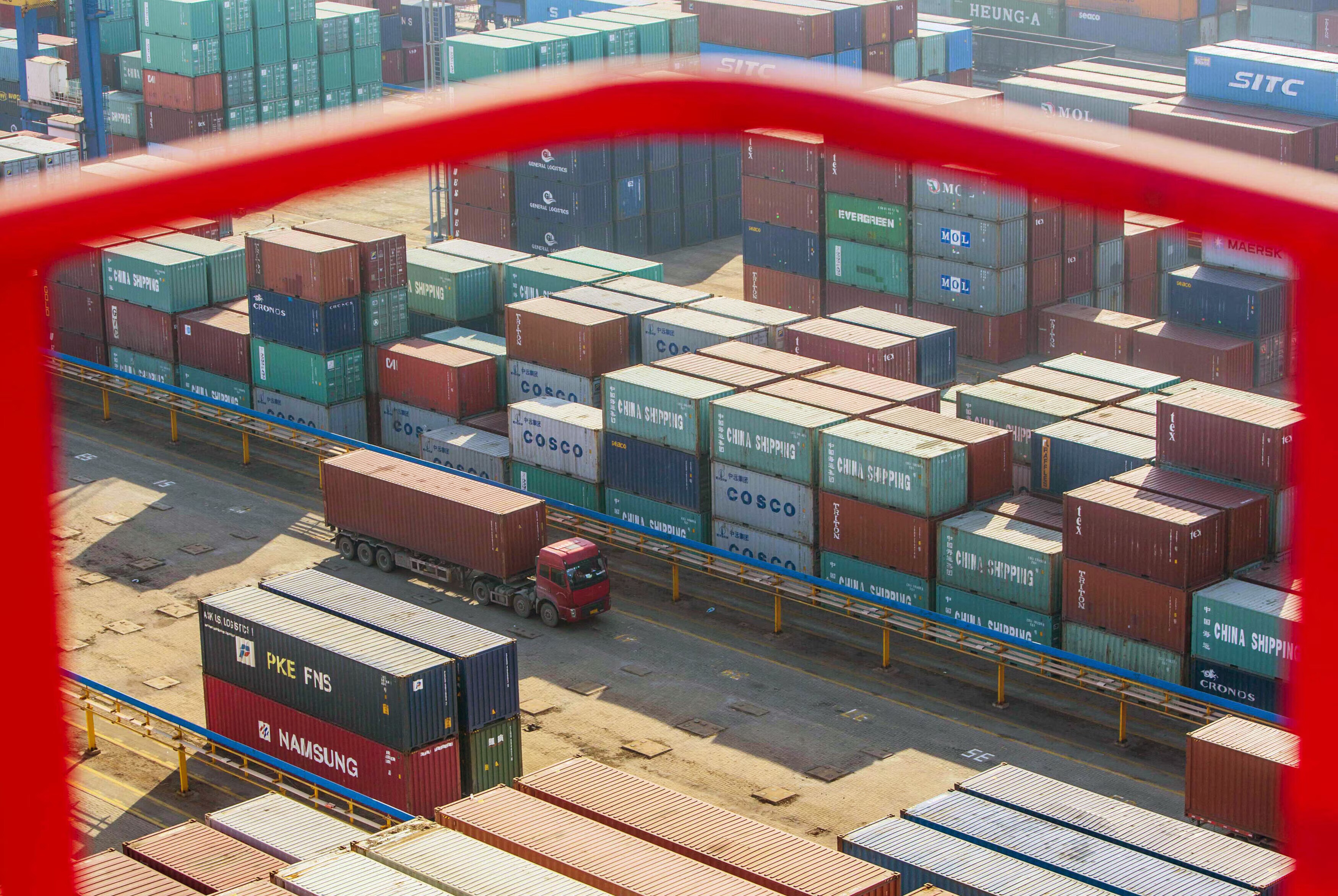How do vital businesses continue to operate in a war zone? The view from Yemen
ポッドキャスト・トランスクリプト
This transcript has been generated using speech recognition software and may contain errors. Please check its accuracy against the audio.
Mohamed Nabil Hayel Saeed, Senior Strategic Advisor, HSA: For us in 2015, when we woke up to find ourselves at war, we had three choices: slow down, shut down or adapt and continue business as usual.
Robin Pomeroy, host, Radio Davos: Welcome to Radio Davos, the podcast from the World Economic Forum that looks at the biggest challenges and how we might solve them.
This week: as conflict in the Middle East reminds us all of the horror of war, we take a look at another war zone where civil war has blighted lives for the last eight years, and ask: how does business continue to operate, and supply vital goods such as food, in somewhere like Yemen.
Mohamed Nabil Hayel Saeed: Yemeni businesses are responsible for a significant part of the economy in the country. We play as a private sector, a major role in Yemen. We import approximately 85% of all food into Yemen.
Robin Pomeroy: The head of this Yemeni food business explains how, even in a war zone, business is vital for people.
Mohamed Nabil Hayel Saeed: There are strong, resilient partners, merchants, shops, small business owners, large business owners in these communities who actually go the extra mile to save lives.
Robin Pomeroy: And this multinational describes the challenges of supplying goods to a war-torn country
Niels Hougaard, Managing Director, Tetra Pak Arabia: Normally in a supply chain, you plan for your manufacturing and it's a system, but here it's completely unpredictable.
Which route can you take into Yemen? Which border is open today? And then you hope that they make it through.
Robin Pomeroy: Subscribe to Radio Davos wherever you get your podcasts, or visit wef.ch/podcasts where you will also find our sister podcasts, Meet the Leader and Agenda Dialogues.
I’m Robin Pomeroy at the World Economic Forum, and with this look at how private sector companies can continue to do vital work in a war zone like Yemen…
Mohamed Nabil Hayel Saeed: For us as private sector, it is very difficult to operate in fragile states.
Robin Pomeroy: This is Radio Davos
Welcome to Radio Davos and an episode that we had planned and recorded many months ago, before the attacks by Hamas on Israel and Israel’s military response in the Gaza Strip.
That conflict has been raging for months, and has drawn in other countries, including the one that is the focus of this episode: Yemen. But even before those recent events, Yemen, a country on the southern tip of the Arabian peninsula, had been in a state of civil war since 2014.
The toll on the people is enormous, with 17 million - more than half the total population - unable to get the food they need, according to the UN World Food Programme.
We wanted to see how private companies, particularly those delivering vital things such as food, can continue to operate in a war zone. And my colleague Nicky Rowe set out to do that, She spoke two companies working there: Tetra Pak, the Sweden-based multinational that is known around the world for its food a beverage packaging. Tetra Pak supplies packaging and packaging machinery to Yemen and to companies that operate in Yemen. We’ll hear from them later.
First, she spoke to Mohamed Nabil Hayel Saeed, a senior executive at Yemen’s HSA Group, a family-run private sector company involved in food distribution. Nicky started by asking him what that company, HSA, is.
Mohamed Nabil Hayel Saeed: We first opened our doors in 1938 in a very small city in the port of Aden in southern Yemen, and 85 years later the family business has grown to what it is today: one of the largest family based businesses in the Middle East, employing around 35,000 globally, with operations from Southeast Asia to most of Africa, the Middle East and the UK.
The family business always adopted the values, that approach to sustainable growth, and set by the values of doing well by doing good. So as a family business, we are built on family values, values of care, compassion and community-minded spirit. And we've practised those in both the good times and the troubled times.
I'm a family member myself and a Yemeni myself. I've seen the impact that family businesses have on communities, have on economies. And so across the years, I've seen how the family and the wider private sector has on millions of people in developed markets, but equally in developing markets such as Yemen and other fragile conflict states.
Nicola Rowe: How has Yemen changed since you've been working in the business?
Mohamed Nabil Hayel Saeed: The country went through many different waves of challenges, good times, and also very troubled times. But specifically, there is a lot of crisis in the world today. And the economic crisis and the food security crisis is a major component of that.
Today we talk when eight out of ten Yemenis are in dire need of some sort of humanitarian assistance, but also for us as private sector, it is very difficult to operate in fragile states. Operating in these types of situations, we, as private sector, as family businesses, face unique challenges. Political stability and security in many cases are not there. And then you have a very poor infrastructure you don't have a reliable access to electricity. Roads which you used to distribute food to major staples, to remote communities, to villages are not sufficient. They are damaged because of the conflict.
And then you have the human capital. There's a lack of skills in the labour market. Schools are being damaged because of the conflict. According to the UNICEF, the country today has 2 million children who are not going to school.
So there is challenges. And to top it off, you have a currency that lost 4/5 of its value against the US dollar. And then the impact of rising costs of the global food crisis. Just before the conflict in Ukraine, the prices was already a ten-year high.
So we end up needing to juggle between all of these challenges that are not in other stable markets.
Nicola Rowe: How do you conduct business? Can you tell us of any specific incident that you can think of or walk us through a day of supply chain challenges? Because most people will never conceive of working in situations such as this.
Mohamed Nabil Hayel Saeed: In some way we are, we operate like a humanitarian organisation. We work with everyone, we're neutral and we try to focus on the communities, making sure food is being reached to the last mile.
We're all about advocating for food security, economic development, and so we make sure we work along with partners to deliver what we do. There's an Arabic saying that says one hand doesn't clap. And so it really takes partners with you to work with us.
And one of these is Tetra Pak, which we're proud of our partnership with Tetra Pak on a range of issues, but most recently on the school feeding programme.
We recently have done a consumer market study on the Yemeni consumer and wanted to understand and get the feeling about the real challenges people are facing on the ground. We want to make sure we're deeply connected to the communities and we listen to what they're facing. And one of those respondents told us that, and I quote, 'Prices have risen horribly this year, one stopped all luxuries'. And the thing that worries me the most is that one does not have savings in case of sickness. So people are really facing a choice between feeding themselves or saving for moments of medical situations.
Another lady told us that instead of what we used to buy in large quantities, now we're buying the smallest packages. And she goes and says, 'I say, give me the cheapest type. We don't care about quality anymore.'
So the choices and the consumer behaviour changes in these markets and we try to listen to these and see how we can adapt our product to match these needs. And one of them was re-looking and revisiting our packaging solutions to make sure we're offering small quantities of food packed rather than loose, which the consumer is going towards.
Nicola Rowe: That's very interesting. Is that the first time that you've done a study like that? Were any of the findings from that surprising or were they all sort of what you'd anticipated?
Mohamed Nabil Hayel Saeed: Some of them was obviously clear for us that people in times of crisis, they go through this decision-making process of prioritising their necessities versus the luxuries, which was understandable, but what was for us concerning is that people went beyond this and they started risking their own health versus what they were able to afford. And they were saying that, fine, we're going to go for the cheapest and unhealthy and try to survive.
So these are difficult situations, but that insight allowed us to produce new products and packaging in the market. So we were able to react to these insights and to be able to make sure that we offer these types of products to the people.
Nicola Rowe: Have you had feedback that it's had an impact?
Mohamed Nabil Hayel Saeed: We started rolling out the products a few months ago and we started seeing some very positive reactions from these communities. We had to also go on an awareness campaign, educating people that this is smaller packed, more healthier than loose products and so on. And so it's a journey, but we saw a very positive uptake from there.
Nicola Rowe: When it comes to your employees, I imagine that your company would rely heavily on local knowledge to direct support to the most vulnerable. How do you find out about these regions and how quickly can you mobilise to get them.
Mohamed Nabil Hayel Saeed: As HSA operating in Yemen, we are deeply, deeply connected to the country, deeply connected to the communities. We've been faithfully serving these communities for 85 years. So we have established presence in the markets, established networks across the country.
We've made sure that we continue to operate through this conflict. And what we usually do is we partner with the regions in the country in which there are traders and merchants there. And so it's more of a partnership between the big businesses, but also the medium and small businesses, because these small and medium businesses are the ones who are present on the ground, in these villages, in these towns. And we make sure that we stay connected.
We have access to around 70,000 outlets in all across the country. And so we made sure to get these out there.
But also specifically in the conflict, there are moments where communities or small villages have been completely disconnected from the local economy because of either the road has been damaged due to the conflict or it's in the middle of a war zone. And so in these moments, the private sector would actually work with local communities to rebuild these roads, to resurface them, and to get them connected back into the local economy.
So that's a moment where the private sector is going a little bit out of focusing on only making profits, but rather trying to lead a more purpose-driven approach to getting these communities back connected into the economy.
So across the years, we've managed to rebuild or to resurface over 140 roads and getting back these disconnected villages back into the economy and servicing them.
Nicola Rowe: Given that, how do you support your employees, how do you describe the myriad of challenges and the uncertainty that your employees would face?
Mohamed Nabil Hayel Saeed: One employee was telling us once, his name is Hashim Ahmed, he handles the transportation of goods from Taizz, a small city in Yemen, to Al Mahrah, another city, and he takes products from the factory and transports it to another city. And this is a long journey. It's eight days, up to 13 days, depending on the road, depending on the security and so on.
And what he was telling us, one is that 'I do work, but this is also humanitarian work'. So as an organisation, the employees have been driven significantly by the purpose and they're actually doing humanitarian work, unlike maybe other markets where they will be driven by meeting sales targets or different types of KPIs. We have people here going the extra mile because they believe that they're doing humanitarian work.
So one is we have employees who are real heroes on the ground we're very proud of who are going that extra mile.
Secondly, as an organisation, we make sure that these employees are very well looked after in terms of salaries. We are the largest private employer in the whole country and we make sure that we stay committed to our 20,000 employees only in Yemen. And so making sure their health insurance is there, their salaries are uninterrupted, their incentives are not interrupted, but most importantly also their self-development.
So we've worked with SAP to launch their first ever young professional training programme in the whole country in Yemen, and we've delivered two batches of that for the first time, SAP in Yemen.
We also partnered with Cisco to try to launch technology hubs in the country in partnership with local universities in the country.
So we want to make sure that we incentivise and to further develop our employees, but also the wider labour market in the country.
And then finally, we launched a few other programs inside HSA Group, specifically for our employees' well-being, making sure that the balance between the work and their life and making sure we're giving them a space in which they can express any of their concerns they face doing that work.
Nicola Rowe: What has your job taught you about human nature? There must be a sense of fatigue after such a prolonged conflict. But food is essential, infrastructure is essential. Is there anything you can say about human nature that you've learned, particularly from the people doing these jobs?
Mohamed Nabil Hayel Saeed: So it's been around nine miserable years in the country. It's difficult for people, it's difficult for businesses and for everyone operating there. And we continue to learn every day.
But what I can say is that we learned that we cannot thrive alone. As businesses in the country, we can't thrive if communities can't thrive. We can't thrive as HSA, for example, if our local communities do not thrive.
And we want to make sure that people can now shift their approach into recovery, reconstruction and rebuilding the country and getting the country back into a journey to prosperity.
But also they say it's only in moments of crisis where one's values are truly put to the test.
For us, in 2015, when we woke up to find ourselves at war, we had three choices: slow down, shut down or adapt and continue business as usual. And these are three difficult decisions as a business you need to take.
We've seen some businesses in the country stepping out and shutting down. But as Yemen's largest business, we chose a different decision is to really adapt and to continue business as usual, because for us, that was the only guarantee that the people will be fed.
And so what we learned from our experience is that businesses need to prioritise long term returns versus short term or quick gains. And for us as a business, our focus is not for the immediate short term profits, but rather staying with communities committed to them in the good times and the bad times in hopes for the long-term return.
We're deeply connected to not only in Yemen, to the communities we work, and we believe that long-term perspective to doing business has been an integral role.
And so that is one of the key learnings, is prioritise long-term return versus short-term gains and making sure you're able to adapt to the situation as well and working in partnership with your international organisations and as well your corporate partners such as our friends at Tetra Pak who have been working and who have been standing with us shoulder to shoulder throughout this difficult situation in the country.
Nicola Rowe: Given that this is sadly called the forgotten war, is there any organisation or group or location that is particularly memorable that you'd like to mention so we can shine a bit of a spotlight on it?
Mohamed Nabil Hayel Saeed: Yemen is a very colourful country. It's very rich, it's very diverse. It's an interesting geography. It has many beautiful places, either in the coastline, a small island called Socotra in Yemen, or in the northern part of the country, an old city that goes back to 3000 year old, people still living there, shops are open and people operate. So there is a lot of interesting historical places in the country.
The people are very resilient and this conflict has shown us the resilience of the Yemeni people and the resilience of the Yemeni private sector throughout this conflict.
So yes, we hope that eventually the country will find its way for peace and people are able to operate on their daily job.
Nicola Rowe: Countries in crisis are often the worst and most impacted by things like climate change. How do you focus on sustainable development goals while you're operating in a prolonged civil war? Do you? Or is it, I would imagine sometimes it's just your hands are sort of tied and you have to make a decision. Have you noticed an impact of climate change in Yemen and on its communities? And have you been able to make any changes to your business to to address them?
Mohamed Nabil Hayel Saeed: Definitely. I mean, more broadly, the UN Sustainable Development Goals play an integral role in the work we do, and I believe it can be done in any setting.
Ending poverty is one of the major UN development sustainable goals and ending hunger. And one of the key work we're doing is advocating for food security and making sure the country remains fed, making sure there is an uninterrupted supply of goods into the country, making sure that we're working with international organisations to support the food security and really trying to march towards end of hunger.
So one of our key focuses and work in the UN SDGs is is to try and end hunger.
But also developing Yemen's infrastructure, making sure that we are able to create jobs in the country and to employ people and to upskill these people. And so that's one of the key work we're doing.
But also, Yemen is threatened by the scarcity of water. There has been drought and some of our facilities has been adapted to become more conscious about waste water management. And so we've adapted our environmental practices in some of these plants. And one of our plants is now being run by 70% solar, making sure that we utilise that source that is available in Yemen.
But also, beyond just businesses, we've seen the Yemeni consumer, the Yemeni community, is shifting from generators and electricity that is powered by the government, which was cut off due to the conflict. People had to choose other means for electricity and one of the major source of energy into Yemeni communities is solar panels. So now just go and stand on top of a long building in Sanaa, Yemen and you just see Yemen with panels, which doesn't sound for many that would be possible in a country like Yemen. But people adapted and people saw that they were able to to use solar to give them energy.
Nicola Rowe: Is there anything else that you'd like to say, while I've got you? I think I could talk all day.
Mohamed Nabil Hayel Saeed: I would like just to share two more things.
For those who may not be aware, Yemeni businesses are responsible for a significant part of the economy in the country. We play as a private sector, a major role in Yemen.
We import approximately 85% of all food into Yemen. We work with humanitarian agencies to supply them with wheat, but also work with them in terms of importing, storing their foods and working with them to distribute those to to the local communities.
And as the private sector is the major source of income for a lot of Yemeni people across the country, so we want people to understand the role of the private sector, not only in Yemen, but the role of the private sector in fragile and conflict states and how local legitimacy and local scale and infrastructure of the private sector and also their commitment to the country is there.
And the Yemeni private sector has proven an inspiring story and a story of a nation's courage, resilience and potential.
And now what we want, and what we are advocating with our international community partners, that the country needs a shift from aid to trade. We want to get the country back into a path towards the prosperity and redevelopment and making sure that the country will not continue forever on aid. But rather then self develop and supporting the country through our recovery process.
And that's what we want to work with our international partners toward.
And finally, I would maybe end by saying that every time we fail to find solutions to these challenges, whether global or local challenges, the most vulnerable in our societies are really hit the hardest.
And so we can be talking about macro economic fancy things. But at the end of the day, there are bread and butter issues people on the ground face. And we want to stay focused on helping household by household, community by community, and seeing how we can alleviate the sufferings of so many people in the country.
But also know that there are strong, resilient partners, merchants, shops, small business owners, large business owners in these communities who actually go the extra mile to save lives.
Robin Pomeroy: Mohamed Nabil Hayel Saeed of Yemen’s HSA Group.
Also working in Yemen is multinational Tetra Pak. Nicky spoke to the Managing Director at Tetra Pak Arabia, Niels Hougaard.
Niels Hougaard: I represent Tetra Pak Arabia. We operate in 12 countries in the Middle East. We have manufacturing sites in Jeddah where we produce our packaging most consumers are familiar with. Aseptic packaging for long life products such as long life milk, long life juices, tomato paste. We're also a leading producer of processing equipment, so we build entire infrastructure for heat treatment, standardisation and manufacturing of food products, all of the plant automation. So basically an end-to-end supplier for food producers in the Middle East.
We have been operating in this part of the world almost 50 years and obviously since 2011 and, further on, and 2015, the operation in Yemen has been radically complicated and much more difficult to undertake than it was in the past. But I think by the end of the day and in close collaboration with our customers in Yemen, that we try to manage, but it's everyday management and every little detail can be a challenge that needs to be handled, such as supply chain management, etc..
Nicola Rowe: We know why aid agencies are in places like Yemen, but private companies would face challenges that the same companies in peaceful zones don't encounter. So why are you continuing to be there? What's the overarching feel for what you do?
Niels Hougaard: We have put in the work to make food safe and available everywhere.
We have long-term partners in Yemen through our 40-plus years. We keep supporting our customers during good times and enduring difficult times.
Obviously, we are taking care of our people. We take care of a lot of things in our business to run it sustainably. During those years it has been more difficult because we simply had to move a large part of our organisation out of Yemen. But then we have reinforced ourselves from the outside and we still have a handful of very good local Yemenis on the ground that operate as good as they can, and as the situation changes, you can say from day to day, with great support from from the teams outside.
Nicola Rowe: How many people in the country currently rely on your products and the supplies that you provide?
Niels Hougaard: For liquid food like evaporated milk, tomato paste, our business and our customers probably represent something in the range of 70-80% of what is produced. You can say consumers and people living in Yemen are reliant on our efforts and not least the efforts of our customers.
Nicola Rowe: What are some of the key challenges that you face operating a business in this sort of environment?
Niels Hougaard: If we try to imagine food factories being trapped in the conflict and also targets or impacted by war, with warehouses burning. And then of course, it's a lot about supply chain management. Which route can you take into Yemen? Which border is open today? Is shipping an option? And can we manage under the circumstances that it may cost much more than road freight?
Normally in supply chain, you plan for your manufacturing and it's a system, but here it's completely unpredictable.
How much stock do you want to sit with? How long would it take you to bring in into Yemen? Sometimes we have been cut off for months. It's really, really difficult. And at times you consider one road, one border or one shipping line or even sometimes the bus to get a certain spare part. And then you hope that they make it through and they don't get stuck too many times.
That is supply chain. But then we have currencies fluctuating hundreds of percentages. We hand-carry every decision we take. We follow everything we do all the way to our customers.
But by the end of the day, the fantastic work I see from my perspective, it's really the Yemenis and our Yemeni customers, their experience and their acceptance of the situation and finding practical solutions every day. That is extremely admirable seen from my position.
Nicola Rowe: Have you been to the country?
Niels Hougaard: Yes, I have. But that was before the war. I used to go in relatively frequently, several times a year to Yemen to meet our customers. So, yes, I've been there.
Nicola Rowe: Is there anything that you can tell us about what you like about the country? You say that the people are resilient and I can only imagine how resilient they have to be.
Niels Hougaard: Wonderful people, warm hearted, long term friends and partners. I mean, the level of hospitality, you would never come for a business meeting only. You would have lunch for the entire company with everything you can dream of, and you would be hosted in the compounds of the customers. And some of my colleagues do travel in under special circumstances. But that is my memory, apart from that, a wonderful country.
Robin Pomeroy: Niels Hougaard, Managing Director at Tetra Pak Arabia, and, before him, Mohamed Nabil Hayel Saeed of HSA Group. They were speaking to Nicky Rowe.
Please subscribe to Radio Davos wherever you get your podcasts and please leave us a rating or review. And join the conversation on the World Economic Forum Podcast club -- look for that on Facebook.
This episode of Radio Davos was presented by me Robin Pomeroy, with reporting by Nicky Rowe. Editing was by Jere Johansson. Studio production was by Taz Kelleher.
We will be back next week, but for now thanks to you for listening and goodbye.
Scroll down for full podcast transcript - click the ‘Show more’ arrow
In an episode recorded before the escalation of conflict in the Middle East, we hear from two private-sector companies involved in the distribution of food, about how they manage to operate in a war zone like Yemen, which has been in a state of civil war since 2015.
Guests:
Mohamed Nabil Hayel Saeed, Senior Strategic Advisor, HSA
Niels Hougaard, Managing Director, Tetra Pak Arabia
Check out all our podcasts on wef.ch/podcasts:
ホスト:
その他のエピソード:
「フォーラム・ストーリー」ニュースレター ウィークリー
世界の課題を読み解くインサイトと分析を、毎週配信。


